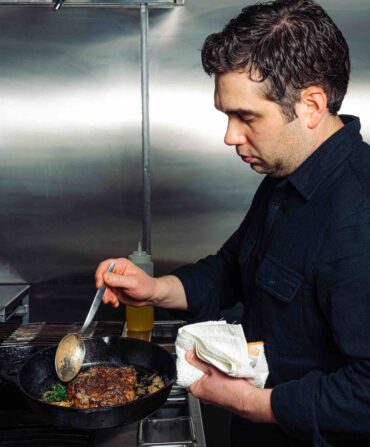It’s coming on spring-training time in Florida. Back in the seventies and eighties, my sportswriting heyday, I would be down there every year in all those out-of-the-way towns like Dunedin, Lakeland, Bradenton, Fort Myers. I remember the oranges, best I ever ate, from the roadside stands that were everywhere, and I remember hurtling along the interstate in my rental car, ninety miles an hour in and out of traffic, keeping up with Reggie Jackson.
Wherever it was that Reggie and I drove to, we found Pirates there. I knew Pirates. “Hey Dock,” I said, for one of the Pirates present was Dock Ellis (who pitched a no-hitter under the influence of LSD), and I figured he and Reggie (who said of a home run he hit in Boston, “It was an insurance run, so I hit it to the Prudential Building”) might want to cut up some touches.
Nope. You would have thought I had walked into a saloon with Sitting Bull and announced, in a chipper ain’t-it-a-small-world sort of voice, “Look who’s here, Bull—it’s General Custer!”
The last time Reggie and Dock had crossed paths, Dock had thrown a pitch that Reggie annihilated: the longest home run ever hit in an All-Star game. The next time they faced each other, Dock threw a pitch that hit Reggie in the face.
“Baseball,” the famously amiable Ernie Banks of the Cubs once said, “is a game of relaxed skills, but you have to have a certain amount of hate to do well.”
I don’t cover baseball anymore, but I’ve kept a world of clippings and notes from those days. Here’s a much cozier spring training story, related by Joe Falls in the Sporting News. In 1957 the New York Giants traded the old knuckleballer Hoyt Wilhelm for the Cardinals first baseman Whitey Lockman.
The Giants were training in Phoenix, the Cardinals in St. Petersburg. So the Lockman family and the Wilhelms loaded up their respective cars and settled in for long drives. In Dallas, the Wilhelms stopped at a traffic light. I’ll let Falls tell you what happened next:
Mrs. Wilhelm looked out the window and gasped.
“Isn’t that Whitey and Shirley in that other car?”
It sure was. The Wilhelms waved them down and, incredible as it seems, the two families visited on that Dallas street.
Wilhelm’s knuckler, astonishingly, kept him on the mound till he was a month shy of fifty years old. I never wrote a story about the knuckleball, but my files reveal a lot of research on it. I would have quoted Jimmy Cannon from 1953: “The knuckleball Johnny Lindell throws resembles an obese moth that has spent the winter in a reefer smoker’s closet and is able to fly without wings.”
An obese moth!
A knuckleball is easy on a pitcher’s arm, but hard on a catcher. “I’d rather catch diphtheria,” said Smoky Burgess.
“A knuckleball toils not, neither does it spin.” My own line. Found it on a scrap of paper just now. I have worked it in somewhere at last.
Spin being the key to a knuckleball, don’t you know: It is released with such minimal rollover that the zephyrs set it dancing. A “dipsy-doo delivery” is what any number of baseball writers have called the knuckleball over the years. Leo Durocher claimed that the arm of a knuckleballer named Freddie Fitzsimmons “was so crooked that he literally could not reach down and pick something up. He had to bend from the knees….To put as little strain on his arm as possible, he only pitched once a week, and even then his arm would draw up, inning by inning, until you could see his hand disappear up his sleeve.”
Bit of a stretcher there, Leo. Figurative, maybe. Bob Apodaca, who pitched for the Mets in the mid-seventies, had this to say about arm disappearance:
“If you throw and feel something different, you got these automatic antennae that go up. You grab for the ball real quick….You know how your arm is supposed to react, and when it doesn’t react like it should, you say, ‘Oh, please come back, please come back.’” Apodaca retired at thirty-one.
It will sort you out, the game of baseball. One spring training when Sparky Anderson was managing the Tigers, he discussed a pitcher named Terry Leach, a seasoned veteran trying to catch on with Detroit at age forty-one. Little too same-old, Sparky suggested: “Terry Leach reminds me of…Terry Leach.”








